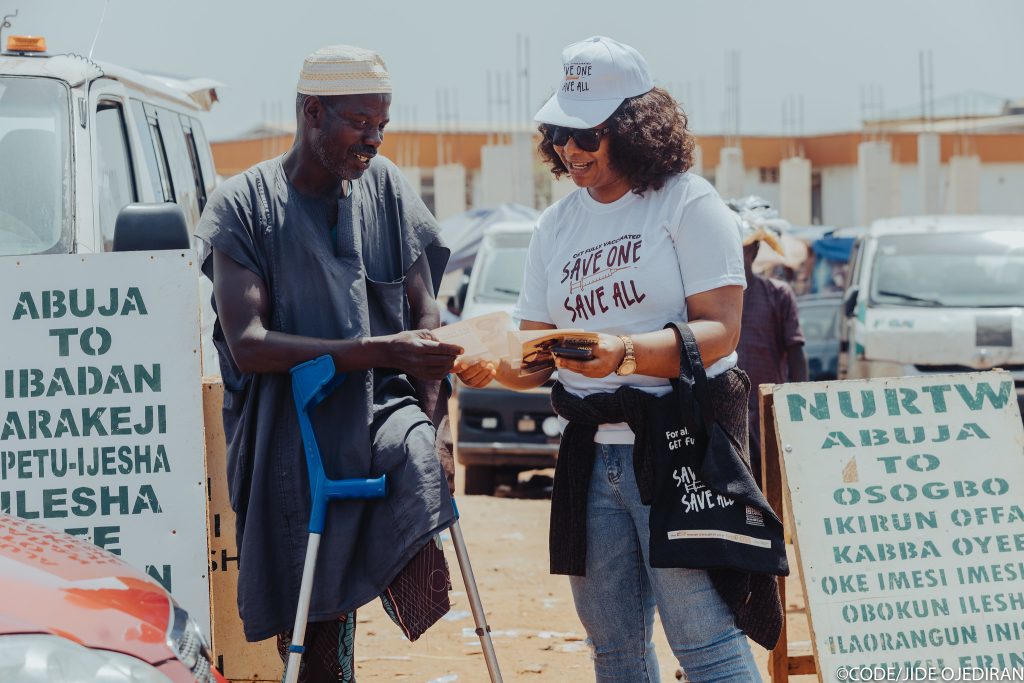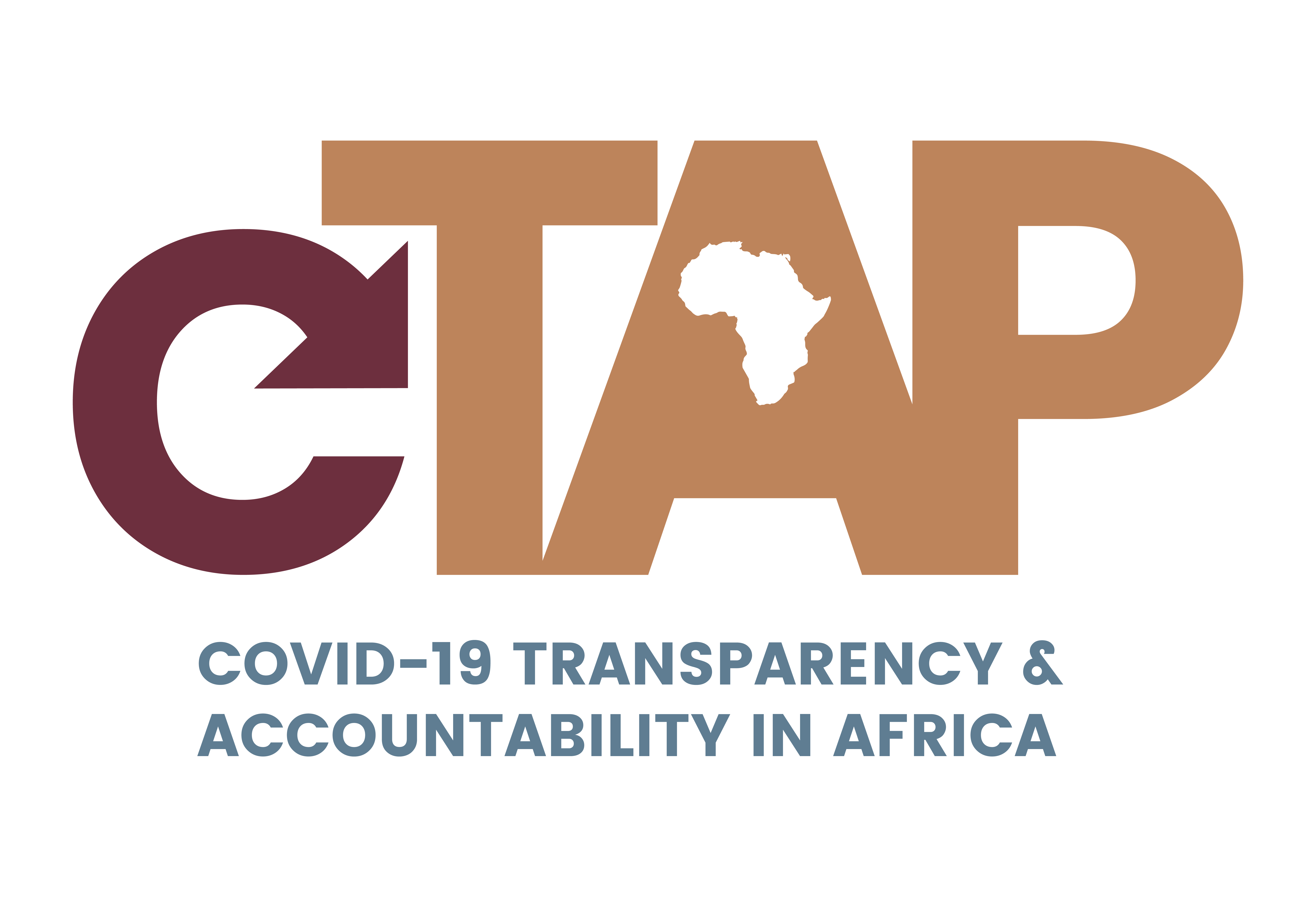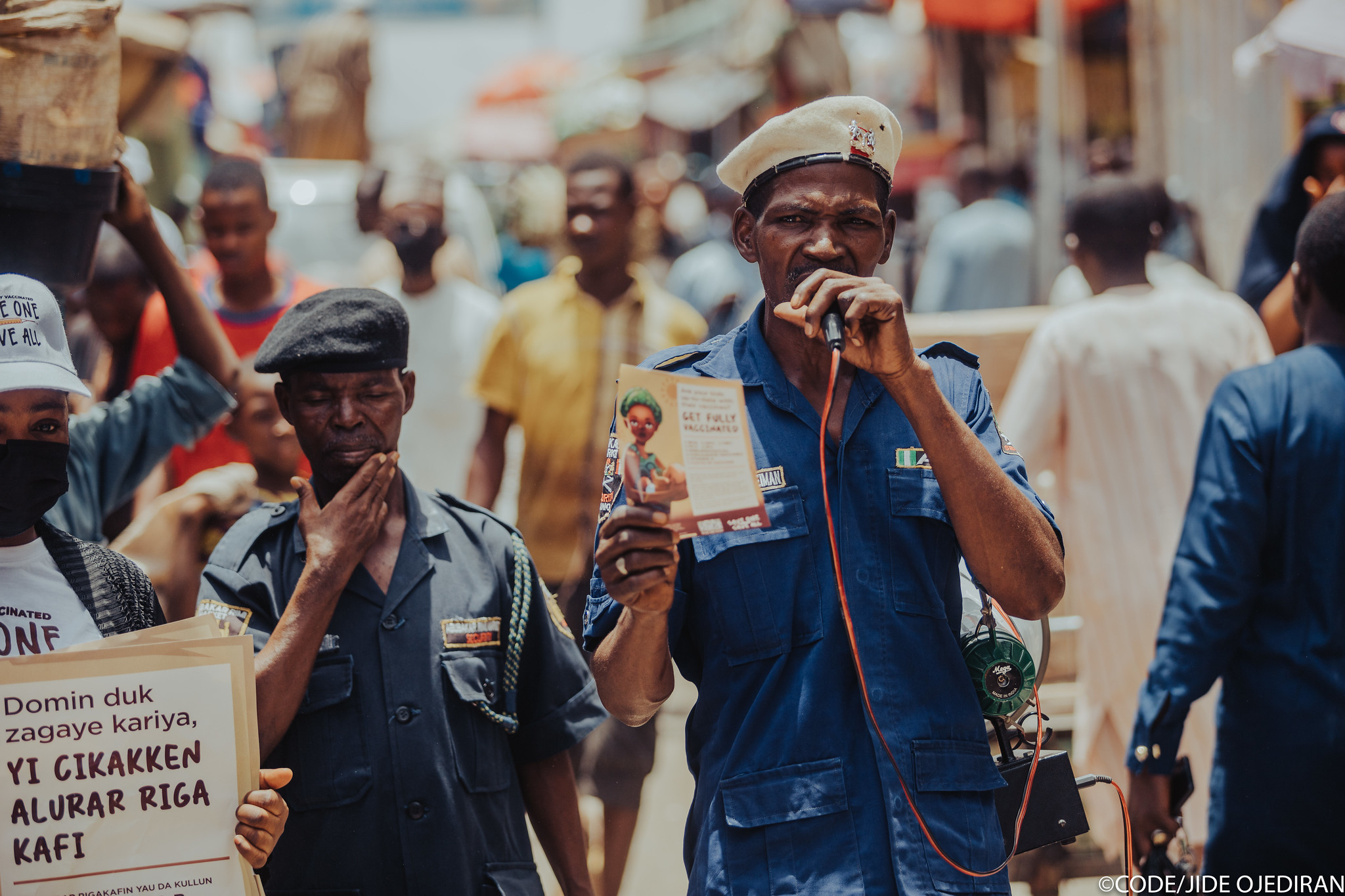The final location for CTAP’s campaigns to educate and enlighten the public on vaccine importance was in Abuja, Federal Capital Territory, the North-Central region of Nigeria. The movements started a month ago with the intent to take the #SaveOneSaveAll message across Nigeria’s six geopolitical areas, and so far, the campaign has been met with resounding success.
Mukhtar Modibo Halilu, CTAP project lead for Connected Development (CODE), led the CTAP team to engage with the Nile University of Nigeria in Abuja during her second Sustainable Development Goals Summit. The team shared the #SaveOneSaveAll campaign with the university community while discussing the various activities and areas of collaboration that will benefit the Nigerian healthcare system.
Mukhtar shared the importance of getting vaccinated for COVID-19 and other vaccines provided by the National Primary Health Care Development Agency (NPHCDA) to ensure everyone’s protection against other diseases. According to him, it is pertinent to stay vigilant and adhere to safety protocols to protect ourselves and those around us.
Providing access to affordable essential medicines and vaccines is one of CTAP’s leading drivers, as it advocates for developing and researching vaccines and drugs for diseases that affect developing countries.
FAR FROM OVER
Globally, nearly 5.3 million new cases and over 48,000 deaths were reported from 23 January to 19 February 2023. As of 19 February 2023, WHO has documented over 757 million confirmed cases and over 6.8 million deaths globally. Its devastation and socio-economic impacts are felt in all countries, including those with the best health systems.
WHAT’S NEXT?
How can we raise public awareness about the importance of vaccination? How do we move forward from here? This was the focus of the interactive sessions with health workers from all North-Central states during the Town Hall meeting, where participants raised the following concerns:
- How can human healthcare resources be boosted as an advocacy measure—such as capacity building for indigenes to study science-related courses (medicine, nursing, and the like), work in their localities as medical practitioners, and build trust through speaking the language their community will understand? – Richard Abubakar, Youth Voyage, Niger State
- How will the malaria vaccine be implemented? Will it cure or prevent malaria? – Abubakar Salisi Oloko, We Care Bridge Builders Foundation, Nasarawa State
- Will the vaccination campaign be a one-off or consistent activity, as resistance to it is in the rural out-of-reach communities? – Abubakar Salisi Oloko, We Care Bridge Builders Foundation, Nasarawa State
- In terms of routine vaccination and vaccine distribution, there is no push system to reach the last man, it is simply a pull system at the LGA level, so there are a lot of necessary costs for service providers to have access to vaccines. How can service providers access vaccines at every level? – Matta Asabe, Plateau State Primary Health Care Board
- What causes various vaccine production, and is it advisable to combine different shots of vaccine brands to get the total dose? – Agagbe Kelvin, The valley initiative Benue State
In his response, Iyanuoluwa Bolarinwa, CTAP project lead for BudgIT, explained that according to the Abuja declaration, 15% of the country’s budget should be allocated to health. This includes training and welfare, but as it stands, only 4% has been allocated. This is a far cry from the required 15%. This means that the country’s health sector is severely underfunded and understaffed, directly impacting citizens’ health and leading to lower life expectancy and poorer overall health outcomes.
He further said political will is crucial for a push to the system where vaccines can reach the last man in rural communities. He stated that BudgIT and CODE would continue leading integrated campaigns until all Nigerian citizens understood the message. He added that vaccines do not cure diseases; they only reduce their severity, and taking different brands of vaccines as various shots have no side effects.
Iyanuoluwa concluded, “There will be infinite boosters as science evolves. This is because after six months, immunity levels drop, which will require updated vaccines to boost immunity.”
GETTING VACCINATED
Vaccine acceptance among a large population can determine the successful control of COVID-19 and other viral pandemics. According to Our World in Data, 70.3% of the world’s population has received at least one dose of a COVID-19 vaccine,13.47 billion doses have been administered globally, and 91,544 are now administered daily. 32.2% of people in low-income countries have received at least one dose.
During the dialogue session, primary healthcare workers and representatives shared the major drivers of vaccine hesitancy in each of their states.
Aza Shuul, a representative of Benue State Primary Healthcare Board, explained that the driver for hesitancy in Benue is vaccine potency. He noted that people are still getting infected after taking the vaccine, which makes it seem ineffective.
“The vaccine administration by care workers should be rightly administered as wrong administration in the vein may have caused the vaccine’s ineffectiveness,” he added.
Apeh Ajuma, State Immunization Officer from Kogi State Primary Health Care Development Agency, said vaccine hesitancy was primarily caused by political will. The state’s public was hesitant to accept COVID-19 vaccination due to a declaration called “Shine your eyes.”
Dr. Adana Nurudeen, Kwara State Primary Health Care Development Agency representative, shared that the major driver for hesitancy in Kwara is mistrust in government due to failed promises and unpaid incentives.
Similarly, his colleague, Yunus Saratm, added that vaccine mobility is a big challenge. Vaccines always get to the health workers every two weeks; sometimes, before they reach their destination, they are already expired. He said vaccine brand changes were also a concern and that many expired products are due to a lack of administration by health workers because they are not paid.
Niger State Primary Health Care Development Agency representative, Jiya Daniel, said that fake news concerning COVID on social media caused hesitancy in his state.
Matta Asabe, Representative of Plateau State Primary Health Care Board, shared that Failed fulfilment of promises by the government in time past, like providing social amenities, has spiked the mistrust of the citizens, which has also led to hesitancy to whatever has “the government’s name attached to it.
CONCLUSION
Over 70% of the Nigerian economy is informal, which caused economic disaster during the pandemic. This is why the vaccine was made so fast and should be treated as a priority. More integrated campaigns need to be conducted to reduce vaccination myths. We all have a responsibility in advocacy to ensure that our knowledge is spread to the public in our states.
Vote of Thanks
Hilton Foundation supported this project, and it has become increasingly evident that raising awareness and informing people about issues of social and grave interest is crucial. Nigerians, in their droves, expressed gratitude to BudgIT and CODE for pioneering this engagement and teaching the public that when one is saved, we all are saved.


